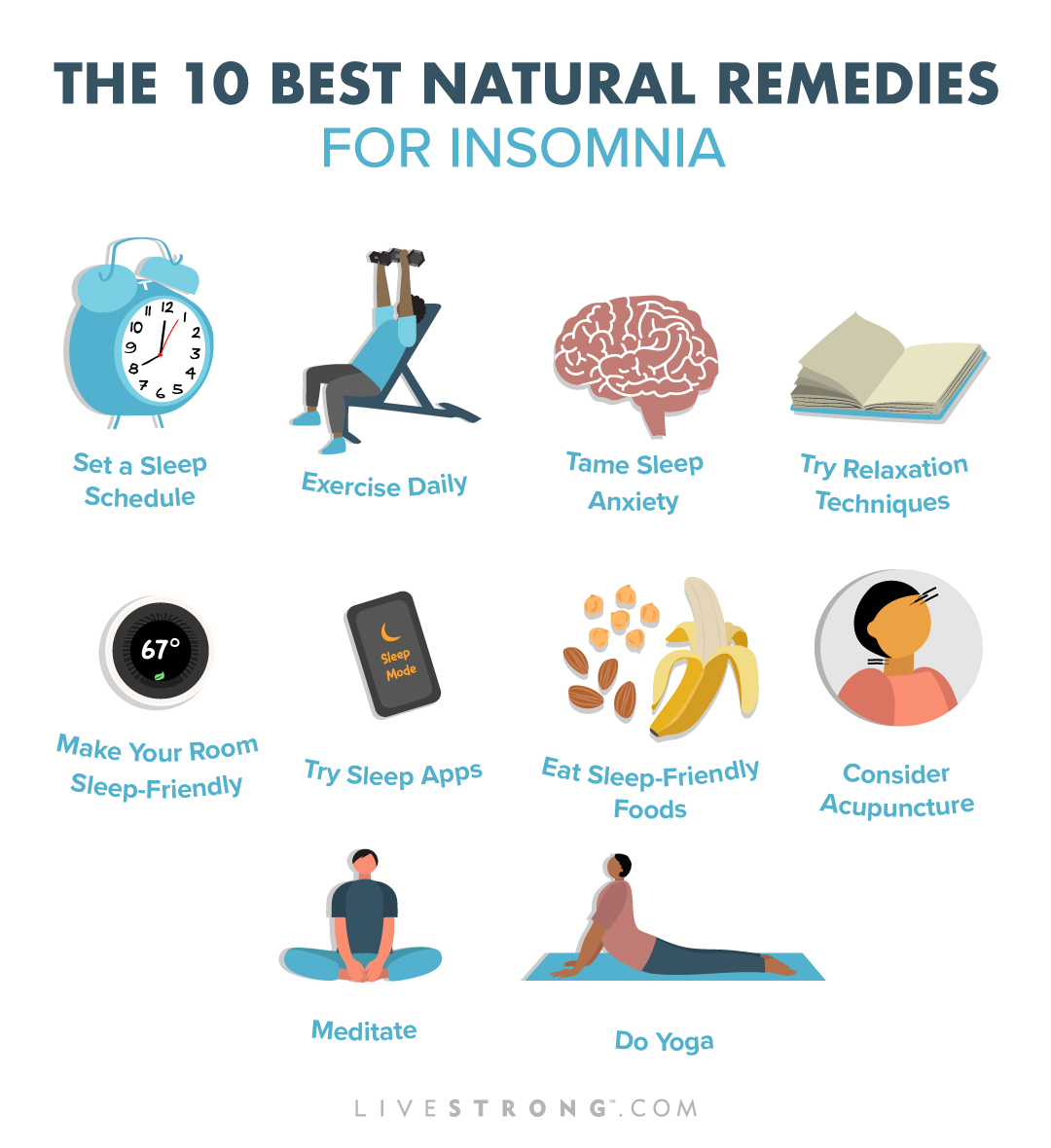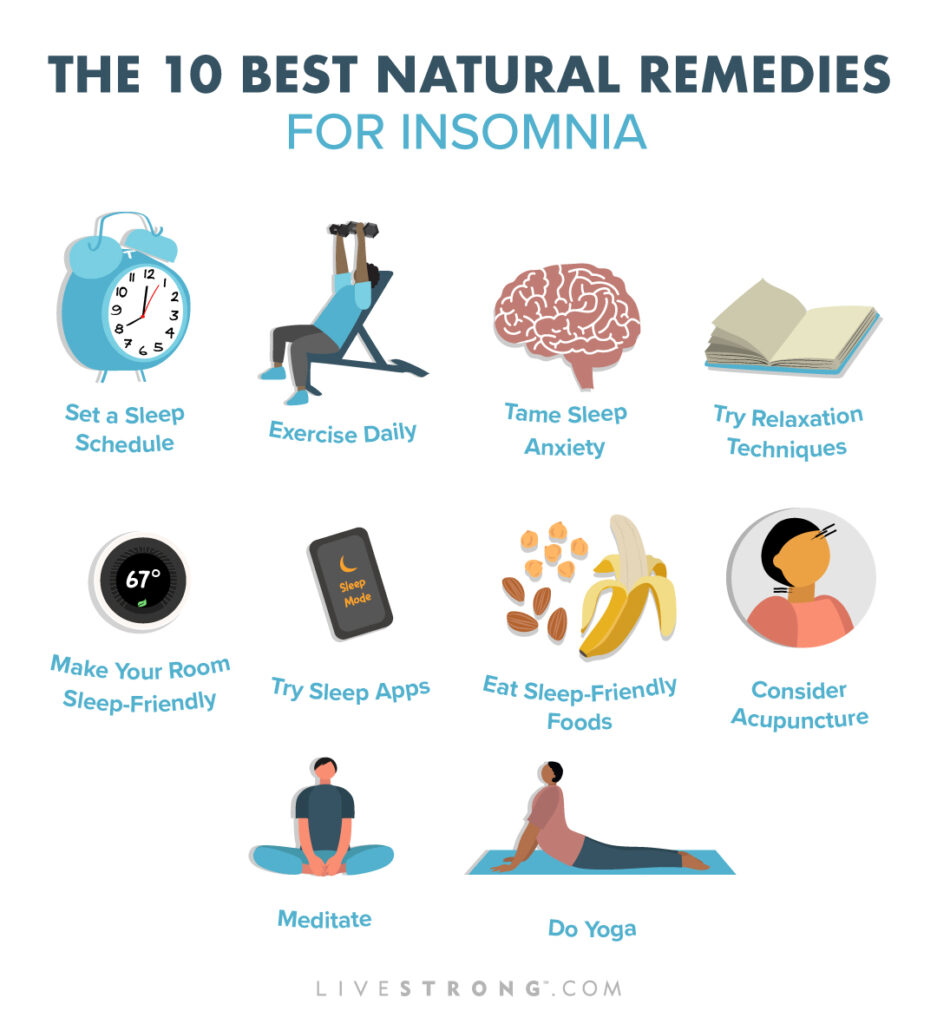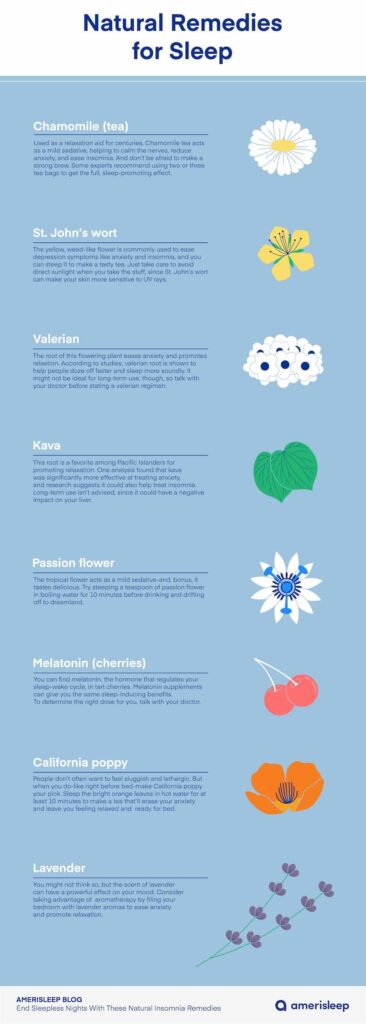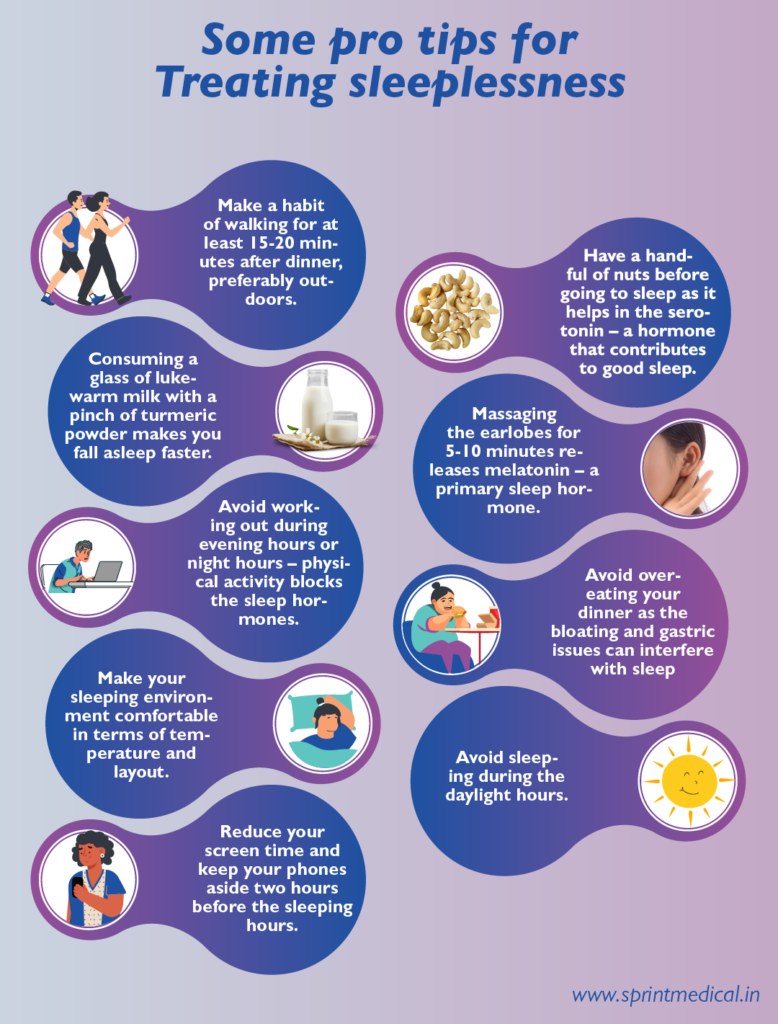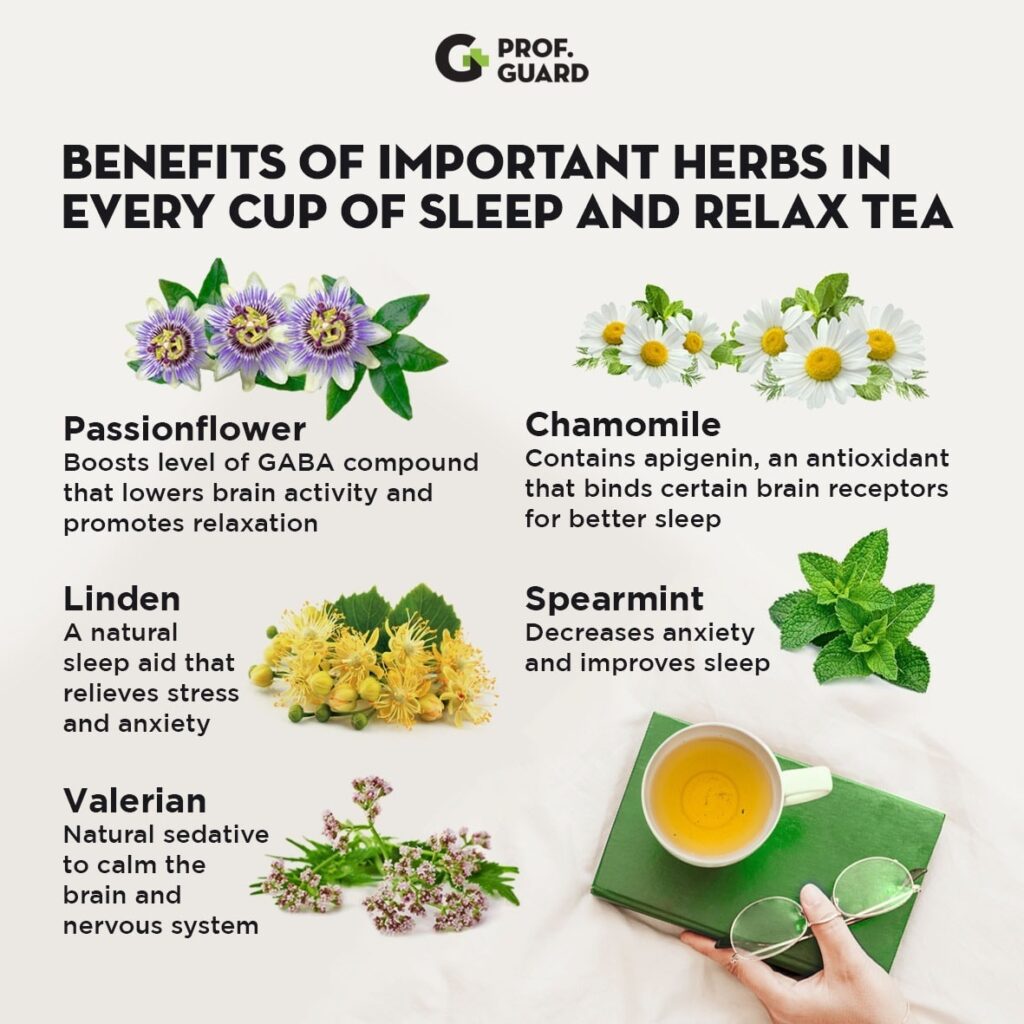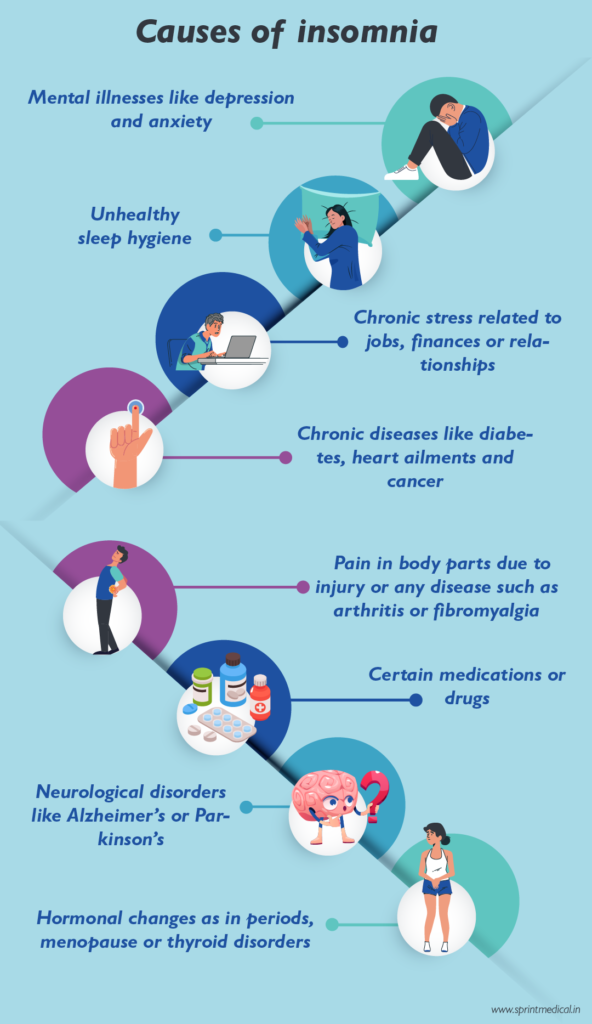Have you ever struggled to fall asleep at night because of a racing mind or overwhelming feelings of anxiety? If so, you’re not alone. Insomnia and anxiety often go hand in hand, making it difficult to achieve the calm and restful nights we all deserve. But fear not, there are natural remedies available to help you combat these common issues and find peace of mind.
In this article, we’ll explore some simple yet effective ways to tackle insomnia and anxiety using natural remedies. From herbal teas and essential oils to lifestyle changes and mindfulness techniques, you’ll discover a variety of options to explore. Whether you’re looking for a quick fix to help you fall asleep tonight or a long-term solution for managing your anxiety, this article has got you covered. So grab a cup of tea, get comfortable, and prepare to find the calm and rest you’ve been longing for.
Understanding Insomnia
Insomnia is a common sleep disorder that affects millions of individuals worldwide. It is characterized by difficulty falling asleep, staying asleep, or experiencing poor quality sleep. This can lead to daytime fatigue, impaired concentration, and overall decreased quality of life.
Definition of Insomnia
Insomnia is defined as a persistent difficulty in initiating or maintaining sleep, despite having adequate opportunity and circumstances to sleep. It can be classified as acute, lasting for a short period, or chronic, persisting for months or even years. While the exact causes of insomnia may vary, it is often linked to factors such as stress, lifestyle habits, medical conditions, and certain medications.
Factors Contributing to Insomnia
Various factors can contribute to the development of insomnia. Stress and anxiety are common triggers, as they can disrupt the ability to relax and fall asleep. Lifestyle choices, such as excessive caffeine and alcohol consumption, irregular sleep patterns, and lack of exercise, can also contribute to insomnia. Additionally, certain medical conditions, such as chronic pain, respiratory disorders, and hormonal imbalances, can disrupt sleep patterns.
Effects of Insomnia on Physical and Mental Health
Insomnia can have significant impacts on both physical and mental health. Sleep deprivation can weaken the immune system, making individuals more prone to infections and illnesses. It can also increase the risk of developing chronic conditions such as obesity, diabetes, and cardiovascular diseases. In terms of mental health, insomnia is strongly associated with mood disorders, including anxiety and depression. Chronic sleeplessness can exacerbate symptoms of these conditions and impair cognitive function, memory, and overall mental well-being.
Common Types of Anxiety Disorders
Anxiety disorders are a group of mental health conditions characterized by excessive worry, fear, and apprehension. They can interfere with daily activities and have a profound impact on a person’s quality of life. Here are some of the most common types of anxiety disorders:
Generalized Anxiety Disorder
Generalized Anxiety Disorder (GAD) is characterized by persistent and excessive worry about various aspects of life, such as work, relationships, health, and finances. People with GAD often experience difficulties controlling their worry and may find it challenging to relax or sleep.
Panic Disorder
Panic Disorder is characterized by recurrent, unexpected panic attacks, which are sudden episodes of intense fear or discomfort. Panic attacks can be accompanied by physical symptoms such as rapid heart rate, shortness of breath, sweating, and feelings of impending doom.
Social Anxiety Disorder
Social Anxiety Disorder, also known as social phobia, is an intense fear of being negatively judged or evaluated in social situations. People with social anxiety often avoid social interactions, leading to a significant impairment in their personal and professional lives.
Symptoms and Causes of Anxiety
Anxiety can manifest in both physical and psychological symptoms, and its causes can vary from person to person. Here are some common symptoms and causes of anxiety:
Physical Symptoms of Anxiety
Physical symptoms of anxiety can include rapid heartbeat, sweating, trembling, shortness of breath, dizziness, and gastrointestinal disturbances. These symptoms are often the body’s physiological response to stress and can be triggered by various situations or thoughts.
Psychological Symptoms of Anxiety
Psychological symptoms of anxiety typically include excessive worry, restlessness, irritability, difficulty concentrating, and sleep disturbances. Individuals with anxiety may also experience a sense of dread, impending doom, or a constant feeling of being on edge.
Causes of Anxiety
The causes of anxiety can be multifaceted, involving a combination of genetic, environmental, and individual factors. Genetic predisposition, family history of anxiety, and imbalances in brain chemistry can contribute to the development of anxiety disorders. Traumatic life events, chronic stress, and certain medical conditions can also trigger or exacerbate anxiety symptoms.
Natural Remedies for Insomnia
While medical interventions are available to treat insomnia, many individuals prefer natural remedies to promote better sleep. Here are some effective natural remedies for insomnia:
Establishing a Bedtime Routine
Having a consistent bedtime routine can signal to your body that it is time to wind down and prepare for sleep. This can include activities such as taking a warm bath, reading a book, practicing relaxation techniques, or listening to calming music. Creating a relaxing atmosphere in your bedroom, free from distractions and electronic devices, can also aid in establishing a healthy sleep routine.
Creating a Sleep-Friendly Environment
Creating a sleep-friendly environment can significantly improve your chances of achieving restful sleep. This can involve investing in a comfortable mattress and pillows, ensuring your bedroom is at an optimal temperature, and minimizing noise and light disturbances. Investing in blackout curtains, earplugs, or white noise machines can also help create an ideal sleep environment.
Mindfulness and Meditation Techniques
Mindfulness and meditation techniques can be effective in calming the mind and promoting relaxation. By focusing on the present moment and cultivating a non-judgmental awareness, individuals can reduce stress and anxiety, making it easier to fall asleep. Practicing deep breathing exercises, progressive muscle relaxation, and guided imagery can also help in achieving a calm and restful state before bedtime.
Herbal Supplements for Insomnia
In addition to lifestyle modifications, certain herbal supplements can aid in promoting better sleep. Here are some herbal remedies that have shown promise in managing insomnia:
Valerian Root
Valerian root is a natural sedative that has been used for centuries to promote sleep and reduce anxiety. It works by increasing the levels of gamma-aminobutyric acid (GABA) in the brain, a compound that helps regulate neuronal excitability. Valerian root can be consumed in the form of capsules, teas, or tinctures.
Chamomile
Chamomile is a popular herbal remedy known for its calming properties. It contains apigenin, a compound that binds to benzodiazepine receptors in the brain, promoting relaxation and sleepiness. Chamomile tea is a common way to consume this herb, but it is also available in the form of capsules or essential oils.
Lavender
Lavender has long been used as a natural remedy for promoting relaxation and aiding sleep. It has sedative properties that can help reduce anxiety and improve the quality of sleep. Lavender essential oil can be diffused in the bedroom, added to bathwater, or applied topically to aid in relaxation before bedtime.
Lifestyle Changes to Manage Anxiety
In addition to natural remedies, making certain lifestyle changes can be beneficial in managing anxiety. Here are some lifestyle modifications that can help reduce anxiety symptoms:
Regular Exercise and Physical Activity
Engaging in regular exercise and physical activity can have a positive impact on both physical and mental health, including anxiety. Exercise releases endorphins, the body’s natural feel-good chemicals, which can boost mood and reduce anxiety. Aim for at least 30 minutes of moderate-intensity exercise most days of the week.
Improving Dietary Habits
Eating a balanced diet and avoiding excessive consumption of processed foods, sugary snacks, and caffeine can help stabilize mood and energy levels. Nutrient-rich foods such as fruits, vegetables, whole grains, and lean proteins provide essential vitamins and minerals that support proper brain function and can help regulate anxiety.
Limiting Caffeine and Alcohol Intake
Caffeine can increase feelings of restlessness, anxiety, and sleeplessness in individuals prone to anxiety disorders. It is advisable to limit or avoid caffeine, especially in the afternoon and evening. Similarly, excessive alcohol consumption can worsen anxiety symptoms and disrupt sleep patterns. It is important to drink alcohol in moderation or abstain altogether.
Relaxation Techniques for Anxiety
In addition to lifestyle changes, various relaxation techniques can be employed to manage anxiety. These techniques can help calm the mind, reduce stress, and promote a greater sense of calm. Here are some relaxation techniques that can aid in managing anxiety:
Deep Breathing Exercises
Deep breathing exercises, such as diaphragmatic breathing and box breathing, can help activate the body’s relaxation response. These techniques involve inhaling deeply through the nose, allowing the belly to expand, and exhaling slowly through the mouth, focusing on releasing tension and stress.
Progressive Muscle Relaxation
Progressive muscle relaxation involves tensing and releasing various muscle groups to promote physical and mental relaxation. By systematically tensing and relaxing muscles, individuals can become more aware of areas of tension in their body and learn to release stress and anxiety.
Yoga and Tai Chi
Yoga and Tai Chi are mind-body practices that combine physical movement with breath awareness and meditation. These practices can help reduce anxiety by promoting relaxation, improving flexibility, and increasing self-awareness. Regular practice of yoga or Tai Chi can lead to improved mental and physical well-being.
The Role of Cognitive Behavioral Therapy
Cognitive Behavioral Therapy (CBT) is a widely recognized therapy approach used to treat various mental health conditions, including insomnia and anxiety. CBT involves identifying and challenging negative thoughts and beliefs, developing coping strategies, and implementing behavioral changes. Here’s how CBT can help manage insomnia and anxiety:
Understanding CBT
CBT helps individuals understand the relationship between their thoughts, feelings, and behaviors. By identifying and challenging negative thought patterns, individuals can change their perception of situations and develop healthier coping mechanisms. CBT is typically conducted through structured sessions with a trained therapist.
How CBT Can Help Manage Insomnia
In the context of insomnia, CBT helps individuals identify and address the cognitive and behavioral factors that contribute to their sleep difficulties. This can involve techniques such as sleep restriction, stimulus control, and cognitive restructuring. CBT for insomnia has been shown to be highly effective in improving sleep quality and reducing insomnia symptoms.
How CBT Can Help Manage Anxiety
CBT can be highly effective in managing anxiety by helping individuals identify and challenge maladaptive thought patterns and develop healthier coping strategies. By addressing cognitive distortions, individuals can reframe negative or anxious thoughts and reduce the impact of anxiety on their daily lives.
Aromatherapy for Calm and Rest
Aromatherapy involves the use of essential oils to promote physical and mental well-being. Certain essential oils have calming and soothing properties that can aid in managing insomnia and anxiety. Here are some essential oils commonly used for relaxation:
Essential Oils for Relaxation
Lavender, chamomile, bergamot, and ylang-ylang are essential oils known for their relaxing and calming properties. These oils can be diffused in the bedroom, added to bathwater, or applied topically (diluted with a carrier oil) to promote relaxation and restful sleep.
Methods of Using Essential Oils
Essential oils can be used in various ways, depending on personal preference. Diffusing oils using an essential oil diffuser is a popular method, as it allows for inhalation of the oils’ aromatic compounds. Oils can also be added to bathwater, applied to the skin (diluted with a carrier oil), or used in massage oils or lotions.
Safety Precautions
While essential oils are generally safe when used correctly, it is important to exercise caution. Some oils may cause skin irritation or allergic reactions in some individuals. It is advisable to perform a patch test before using any essential oil topically and to consult a healthcare professional if you have any underlying health conditions or are taking medications.
Conclusion
Calm and Rest: Natural Remedies for Insomnia and Anxiety offers individuals a range of natural approaches to managing these conditions. By understanding the factors contributing to insomnia and anxiety, and by implementing lifestyle changes, relaxation techniques, and natural remedies, individuals can take control of their well-being. It is important to remember that while natural remedies can be effective, seeking professional help when necessary is crucial. If insomnia or anxiety symptoms persist or significantly impact your daily life, it is recommended to consult with a healthcare professional for further evaluation and guidance on the most appropriate treatment options. Remember, you have the power to create calm and rest in your life!
